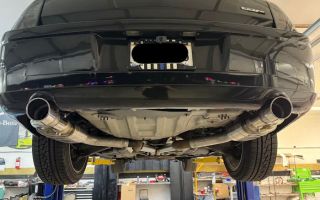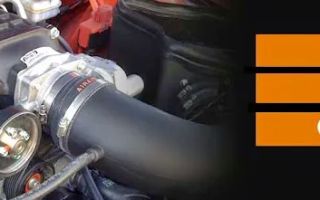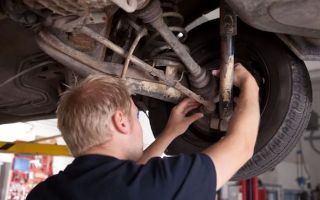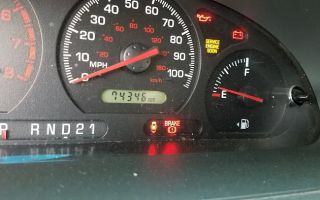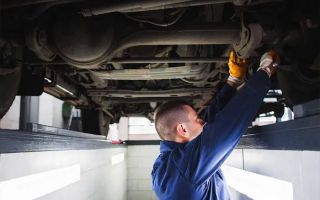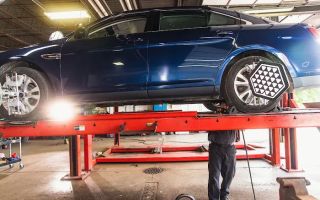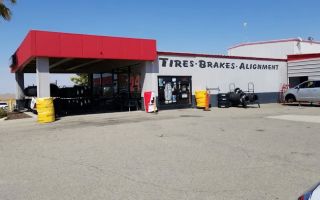Expert Advice on Preventing Car Breakdowns
Car breakdowns are one of the most dreaded experiences for any driver, often occurring at the most inconvenient times. Whether you're driving to work, on a family road trip, or just running errands, a car breakdown can disrupt your day and leave you stranded. As someone who has experienced the frustration of being stuck on the side of the road, I know how important it is to take steps to prevent breakdowns before they happen. In this article, I'll share expert advice on how to keep your car running smoothly and avoid those unfortunate breakdowns.

Pick Your Part - Help Yourself
1232 Blinn Ave, Wilmington, CA 90744, USA
1. Regular Vehicle Maintenance
The foundation of preventing car breakdowns starts with regular maintenance. A well-maintained car is less likely to break down, so make sure you're staying on top of the basic maintenance tasks that keep your vehicle in good shape. This includes checking the oil regularly, replacing air filters, and inspecting belts and hoses. Don't forget to check the tire pressure and tread to ensure safe driving. Many car breakdowns can be traced back to poor maintenance, and investing in this aspect can save you time, money, and hassle down the road.

Pick Your Part - Greer
13054 E Wade Hampton Blvd, Greer, SC 29651, USA
2. Keep an Eye on Your Battery
Your car's battery is a critical component that powers many essential functions. Over time, batteries can lose their charge, especially in extreme weather conditions. To avoid a sudden dead battery, inspect your battery regularly for signs of corrosion and ensure it's securely mounted. If your battery is older than three years, consider replacing it as a preventative measure. If you're unsure of your battery's condition, many auto shops will perform a battery check for you, often for free.
3. Monitor Your Car’s Cooling System
One of the most common causes of breakdowns, especially during hot weather, is engine overheating. To prevent this, it’s essential to monitor your car's cooling system. Regularly check the radiator for leaks or low coolant levels. Ensure that the hoses are intact and free from cracks. If you notice any issues with the temperature gauge or the engine is running hot, get it checked immediately. Overheating can cause serious damage to your engine, and timely intervention can prevent costly repairs.
4. Don’t Neglect the Tires
One of the simplest and most effective ways to avoid breakdowns is by keeping your tires in good condition. Underinflated or worn-out tires are more likely to blow out while driving, leading to accidents or breakdowns. Ensure that your tires are properly inflated and have sufficient tread depth. It’s also a good idea to rotate your tires regularly to ensure even wear. If you notice any unusual vibrations or pulling while driving, it may be a sign of an issue with your tires or alignment, so have it checked immediately.
5. Replace Worn-Out Timing Belts
Timing belts are a critical part of your engine's function, and a failure can lead to a complete breakdown. If your timing belt snaps, it could result in severe damage to your engine, which can be expensive to repair. Most manufacturers recommend replacing the timing belt every 60,000 to 100,000 miles, but it’s a good idea to check your car’s manual for specific instructions. Getting this simple repair done on time can prevent a complete engine failure and save you from costly repairs later on.
6. Pay Attention to Warning Signs
Cars give us subtle hints before they break down. Strange noises, smoke coming from under the hood, or warning lights on the dashboard should never be ignored. Many times, these signs can indicate an issue that can be fixed before it becomes a major problem. If you notice anything unusual, don’t wait for the problem to worsen. Take your car to a trusted mechanic to have it diagnosed and fixed. Ignoring warning signs often leads to bigger and more expensive issues down the line.
7. Have an Emergency Kit Onboard
Despite all the precautions you take, sometimes breakdowns are unavoidable. That's why it's essential to be prepared for emergencies. Keep a basic emergency kit in your car, including tools like a flashlight, jumper cables, tire inflator, and a first-aid kit. You should also include water, snacks, and a blanket, especially if you’re driving in remote areas or during winter months. Having these items readily available can help you manage a breakdown situation more effectively while you wait for roadside assistance.
Breakdowns happen, but with the right precautions, you can significantly reduce your chances of being stranded. By staying on top of regular maintenance, keeping your car in good working order, and being prepared for emergencies, you can minimize the risk of car breakdowns and ensure safer, more reliable driving. If you ever find yourself in need of assistance, make sure to contact professionals like Rescue & Towing, who can help you in those critical moments.

